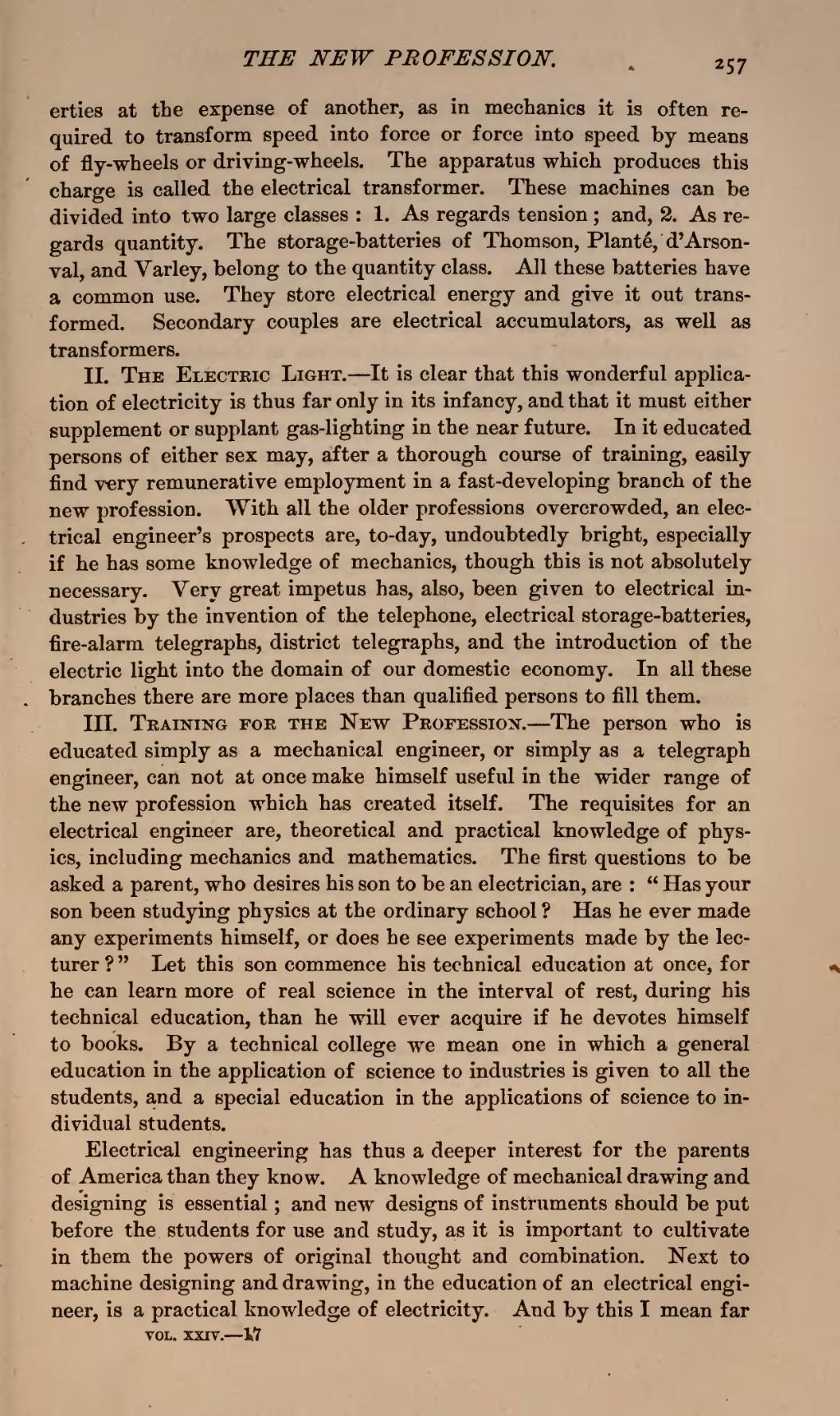erties at the expense of another, as in mechanics it is often required to transform speed into force or force into speed by means of fly-wheels or driving-wheels. The apparatus which produces this charge is called the electrical transformer. These machines can be divided into two large classes: 1. As regards tension; and, 2. As regards quantity. The storage-batteries of Thomson, Planté, d'Arsonval, and Varley, belong to the quantity class. All these batteries have a common use. They store electrical energy and give it out transformed. Secondary couples are electrical accumulators, as well as transformers.
II. The Electric Light.—It is clear that this wonderful application of electricity is thus far only in its infancy, and that it must either supplement or supplant gas-lighting in the near future. In it educated persons of either sex may, after a thorough course of training, easily find very remunerative employment in a fast-developing branch of the new profession. With all the older professions overcrowded, an electrical engineer's prospects are, to-day, undoubtedly bright, especially if he has some knowledge of mechanics, though this is not absolutely necessary. Very great impetus has, also, been given to electrical industries by the invention of the telephone, electrical storage-batteries, fire-alarm telegraphs, district telegraphs, and the introduction of the electric light into the domain of our domestic economy. In all these branches there are more places than qualified persons to fill them.
III. Training for the New Profession.—The person who is educated simply as a mechanical engineer, or simply as a telegraph engineer, can not at once make himself useful in the wider range of the new profession which has created itself. The requisites for an electrical engineer are, theoretical and practical knowledge of physics, including mechanics and mathematics. The first questions to be asked a parent, who desires his son to be an electrician, are: "Has your son been studying physics at the ordinary school? Has he ever made any experiments himself, or does he see experiments made by the lecturer?" Let this son commence his technical education at once, for he can learn more of real science in the interval of rest, during his technical education, than he will ever acquire if he devotes himself to books. By a technical college we mean one in which a general education in the application of science to industries is given to all the students, and a special education in the applications of science to individual students.
Electrical engineering has thus a deeper interest for the parents of America than they know. A knowledge of mechanical drawing and designing is essential; and new designs of instruments should be put before the students for use and study, as it is important to cultivate in them the powers of original thought and combination. Next to machine designing and drawing, in the education of an electrical engineer, is a practical knowledge of electricity. And by this I mean far
